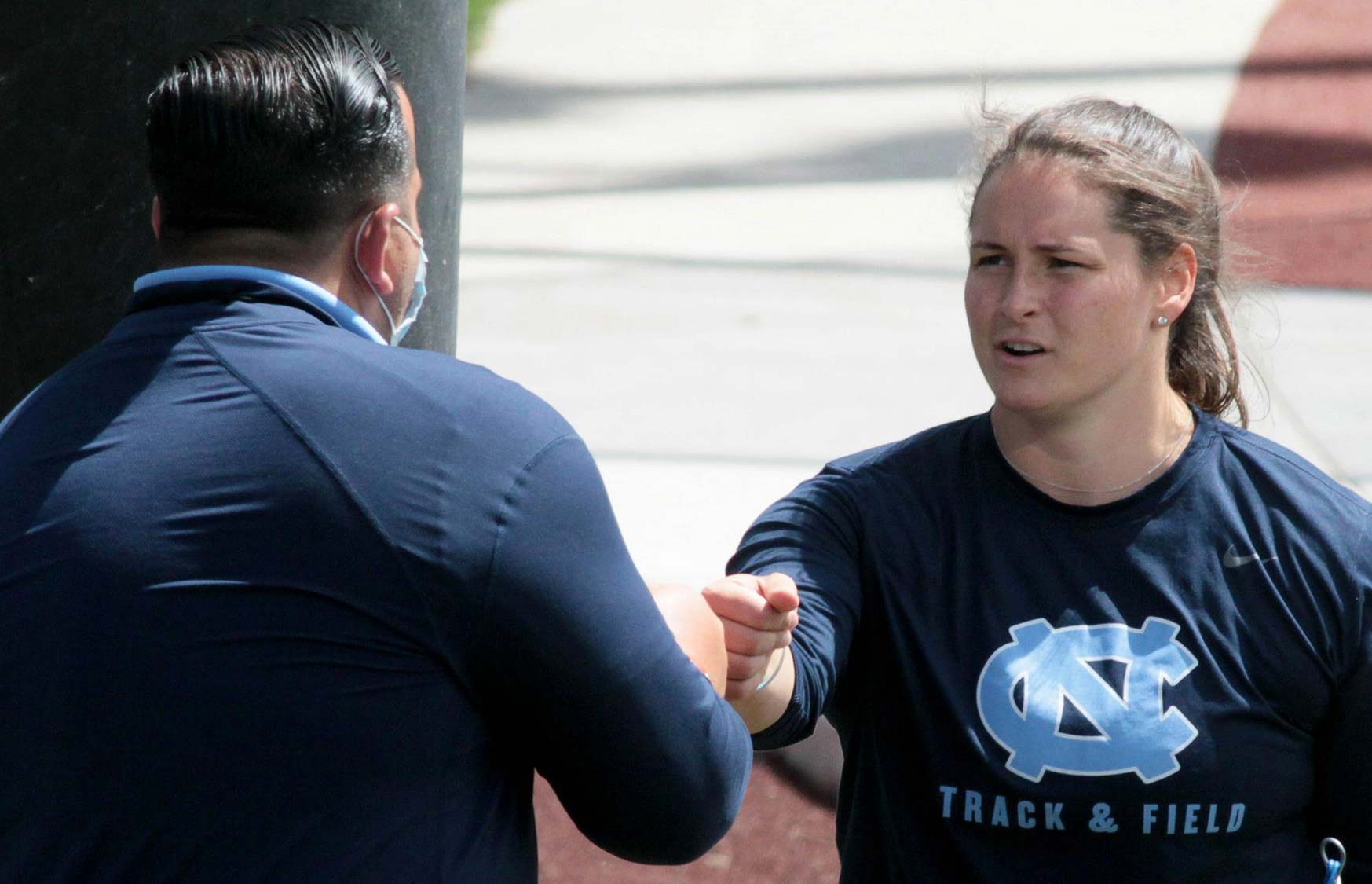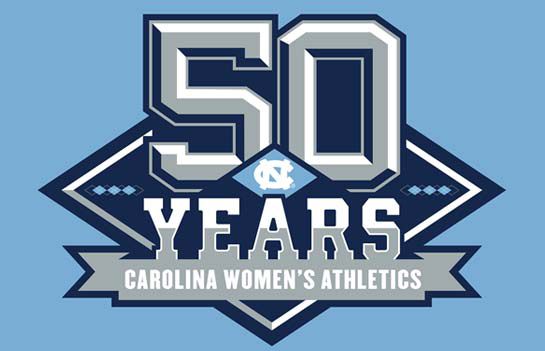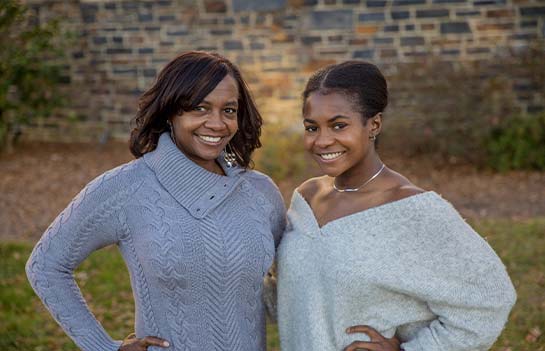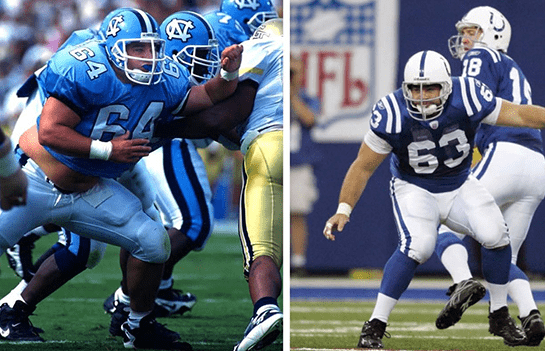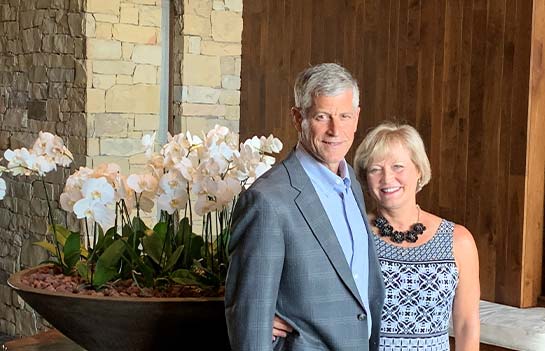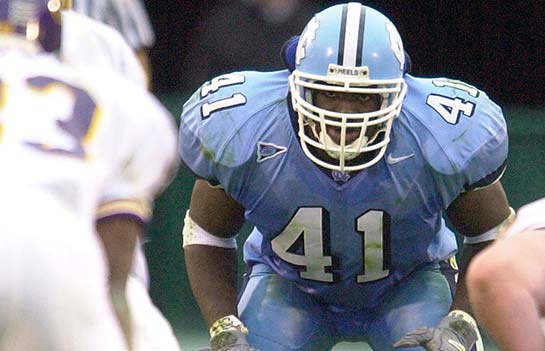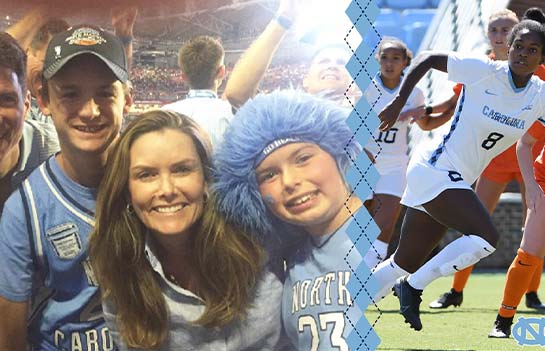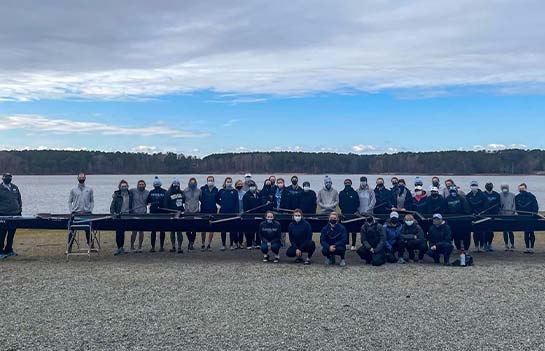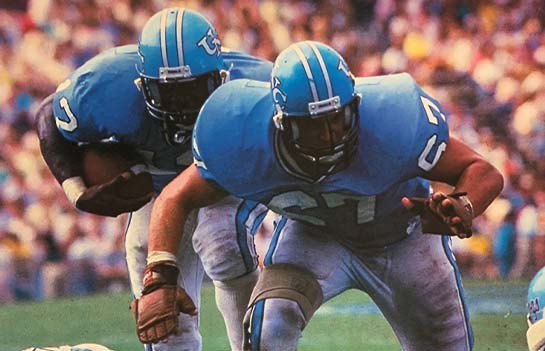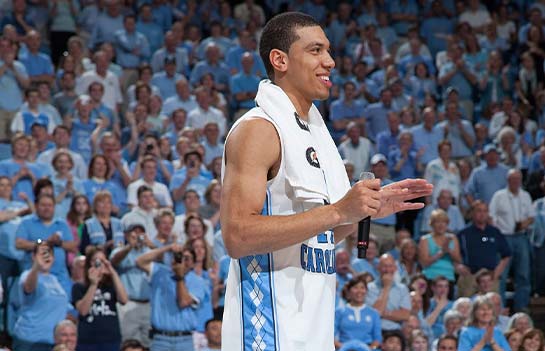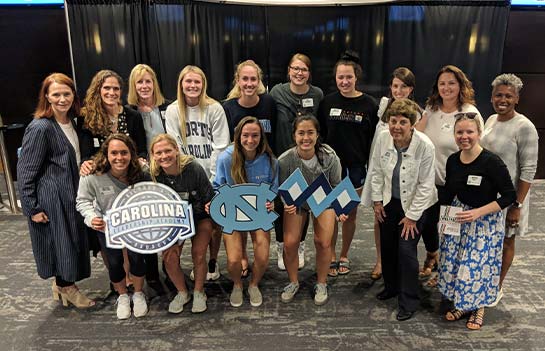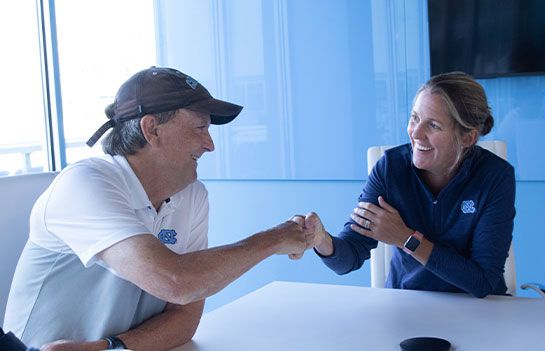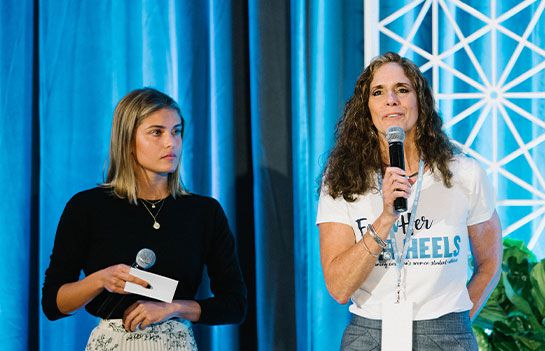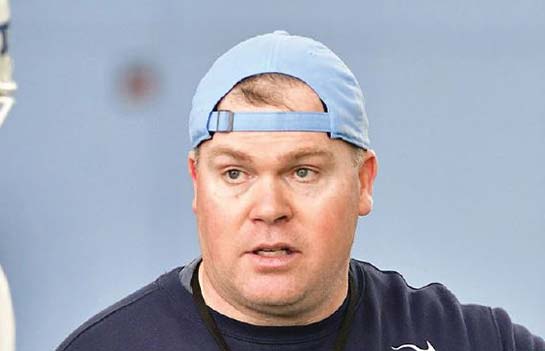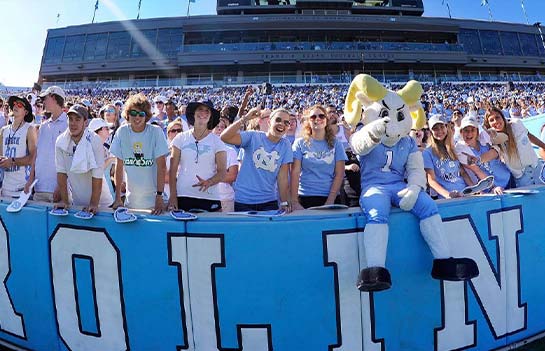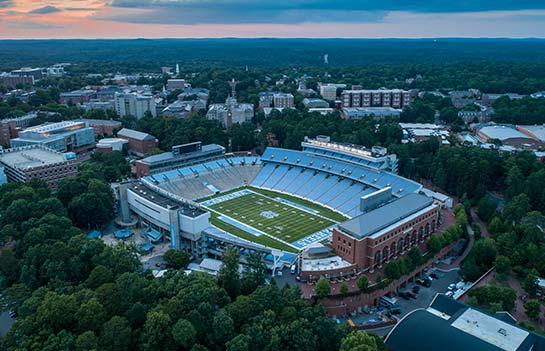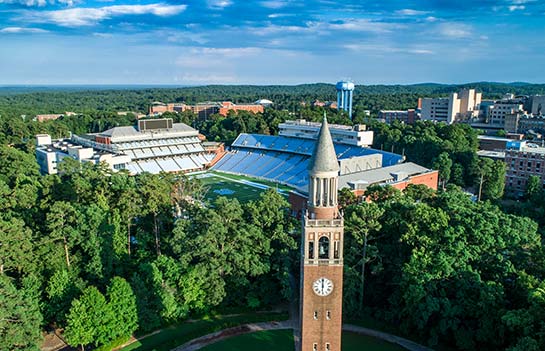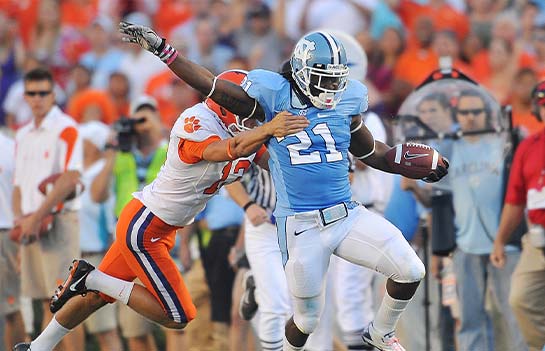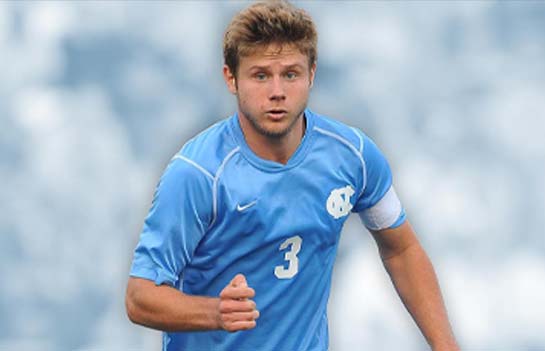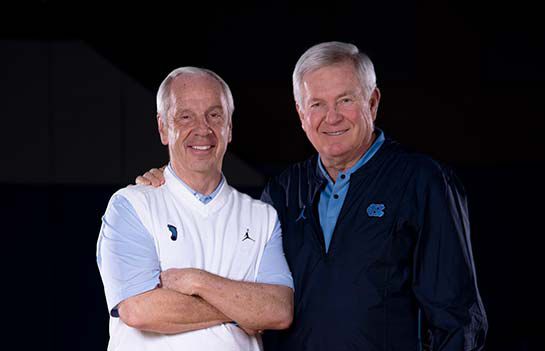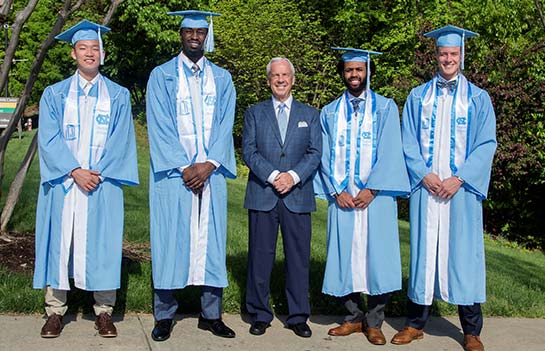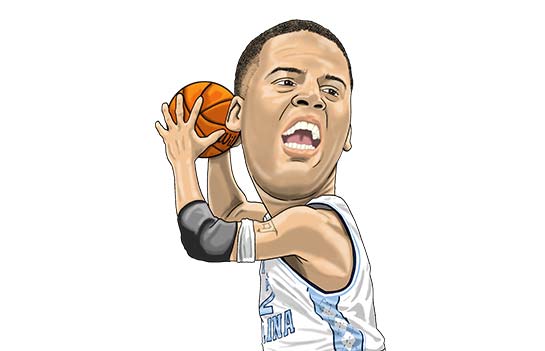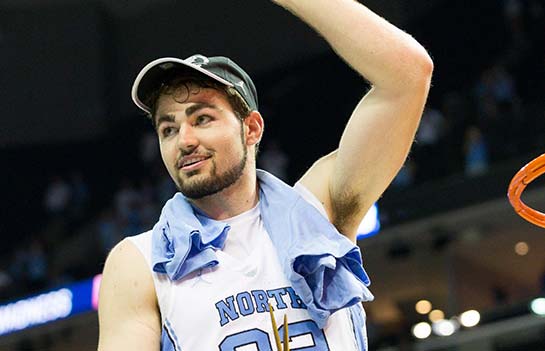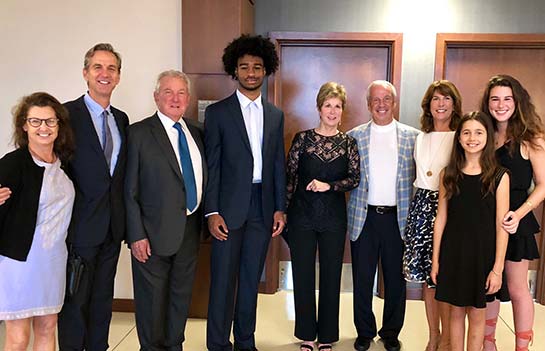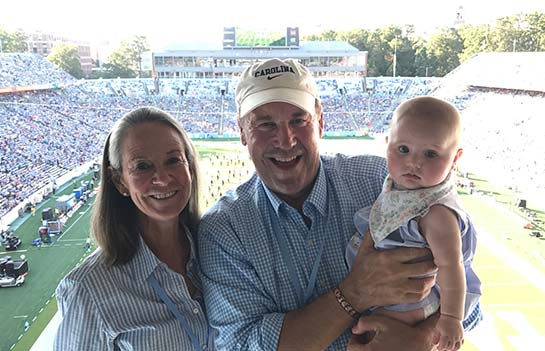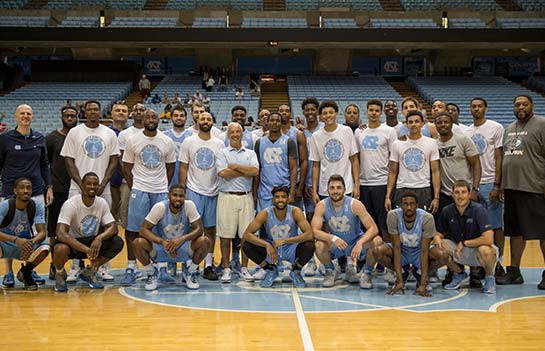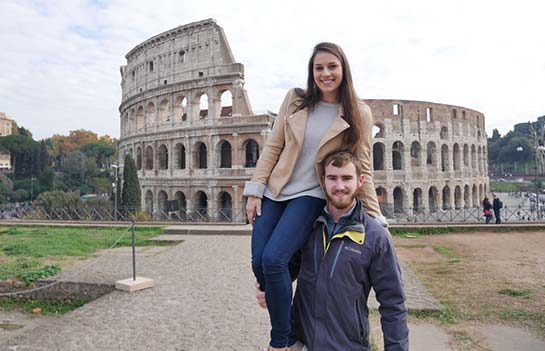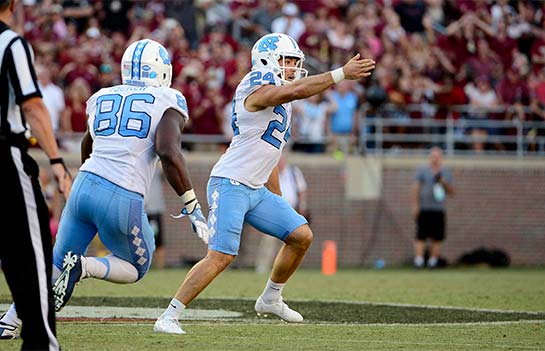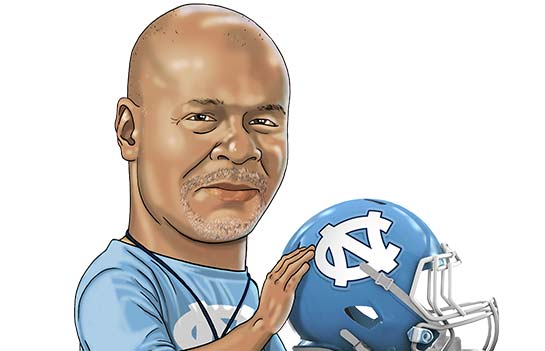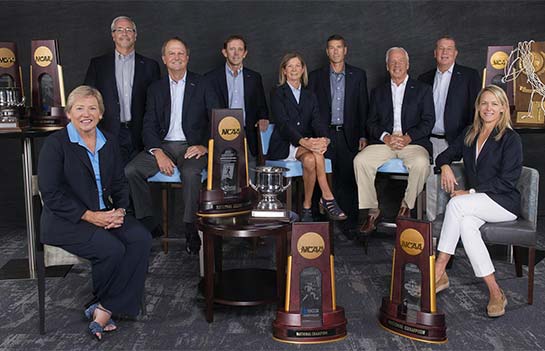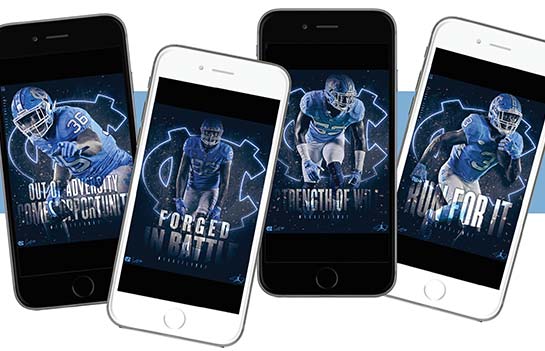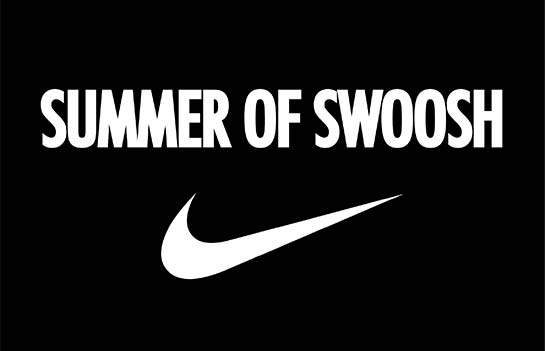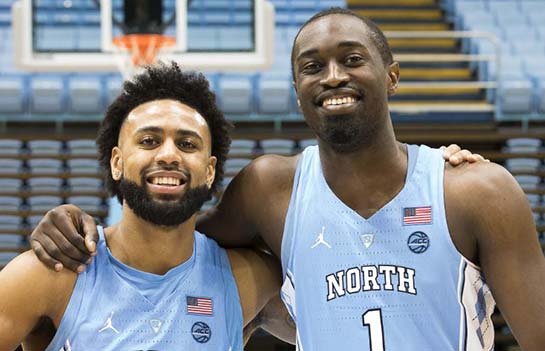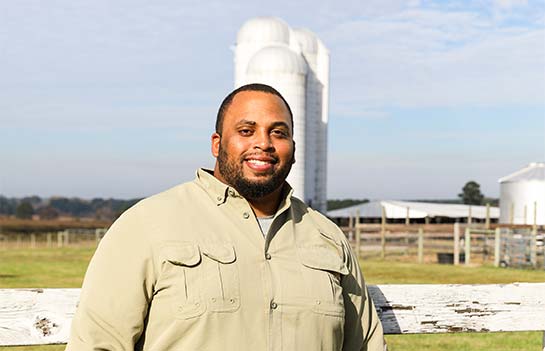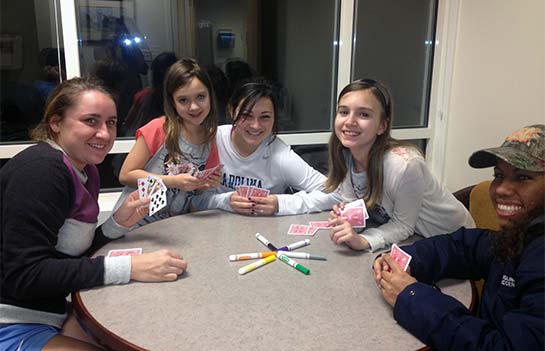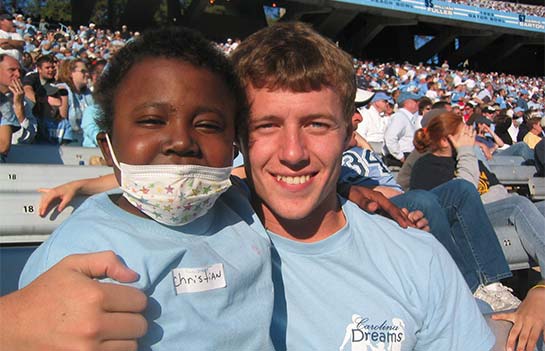Extra Points: The Saturday Legacy
By: Lee Pace

Jeff Saturday spent two summers in 1996-97 working at the Eastgate BP service station—ringing the cash register, pumping gas, changing oil and tires, cleaning up after the station closed. He was one of a handful of Tar Heel football players who earned spending money at the station owned by James Spurling, a long-time friend of Rams Club executive director Ernie Williamson and most anyone who'd ever coached at Carolina. Spurling came to know Saturday as "a lovable kid, hard-worker, lots of energy."
But more than once during the spring of 1998, Saturday showed up all hang-dog, his face tortured and his body language screaming expletives. Saturday's dreams of playing professional football were being lambasted by getting no positive vibes from the NFL Combine, the Tar Heels' pro timing day or the draft itself.
"Mr. Spurling, it looks like I'll be pumping gas and working here the rest of my life," he lamented one day.
Saturday and a dozen or so Tar Heel players coming off their senior years in 1997 and back-to-back Top 10 finishes under head coach Mack Brown had spent their winters and early springs auditioning for NFL general managers, coaches and scouts. Defensive wizards like Greg Ellis, Vonnie Holliday and Brian Simmons sparkled on pro timing day and would eventually be first-round draft picks. Fellow defensive aces Omar Brown, Kivuusama Mays and Robert Williams and thousand-yard tailback Jonathan Linton would also be drafted in later rounds.
But for Saturday, his "measurables" didn't quite meet what the NFL honchos were looking for—height, weight, wingspan, 40 time, etc. His prospects paled juxtaposed against his teammates.
"Jeff dragged in one day, looking like the world was coming to an end," Spurling says. "Ernie took him outside, they sat on that bench for probably two hours. Ernie had been in the NFL. He knew you had to be in the right place at the right time. He told Jeff not to give up the dream."
Later in April, Saturday repaired back to Eastgate BP in the aftermath of not being chosen in the draft.
"James took me outside, we sat on that bench," Saturday remembers. "He said, 'You'll be all right. You have a lot of options. And the best part is, you have a degree from Carolina. That means something.'"
Saturday did secure a free-agent contract with the Baltimore Ravens. But he was cut quickly after a tryout and by mid-June, Saturday was officially a member of the working world, selling electrical supplies for a Raleigh-based company owned by a Duke University graduate named K.D. Kennedy.
"I was working the counter, quoting jobs, learning the ropes," he says of his stint at Electric Supply Company. "It was a good opportunity, there was room to grow. K.D. was a great businessman and I learned a lot."
Meanwhile, he stayed in shape and kept in touch with his many teammates beginning to forge their way in the NFL. His best friend and former roommate, Nate Hobgood-Chittick, was a rookie defensive end for the Indianapolis Colts. After several months gauging the level of ability and heart at the highest level of the game, Hobgood-Chittick felt his old pal was still getting short shrift. He worked up the nerve to approach GM Bill Polian.
"Jeff kicked our butts all over the practice field," Hobgood-Chittick remembered years later. "I could count on one hand the number of times I beat him in a one-on-one drill, and if it happened, I celebrated.
"I had no footing at all with that franchise, so I stood outside Polian's door in my dirty sweats, saying a prayer. I walked in and said, 'There's a guy selling electrical supplies in Raleigh right now who whipped all those first-round draft choices at North Carolina every day.' Polian looked at me and said, 'I love it. Let's get him in here for a workout.'"
And the rest, as they say …
In August 1999, Saturday secured a spot on the Colts' roster in year two of the Jim Mora era (he would be followed as head coach by Tony Dungy for seven seasons). It was also the second year for a talented quarterback from Tennessee named Peyton Manning. Saturday played 11 games at guard his rookie year and moved to center and started 85 straight games before missing two games toward the end of the 2004 season. He made five Pro Bowls while starting for 12 seasons and collected a Super Bowl ring in 2007 with the Colts' 29-17 win over Chicago.
Brian Simmons was a freshman linebacker in 1993 and part of the same juggernaut recruiting class that included 21 players, with a remarkable 14 of them still on the team and playing productive roles as fifth-year seniors. He knew Saturday from five years at Chapel Hill (they were red-shirted in '93) and from playing against him during Simmons' stints with Cincinnati Bengals and New Orleans Saints.
"One thing about Jeff, whatever advantage you thought you had from a physical standpoint, he was going to be technically sound and tough as a dog," Simmons says. "What he accomplished in the league was no surprise. Maybe at the beginning he didn't fit the physical mold, but once he got in the game, you were going to be impressed. You knew he would pick things up and was really smart. I guarantee you from the beginning that's what gave Peyton that comfort level. Peyton said, 'Here's a guy who's going to see everything I see, pick things up and adjust. He'll be the glue for this O-line.'"
Saturday has reflected often of late on the arc his life has taken since arriving in Chapel Hill from Tucker, Ga., in August 1993, starting two years for a Top 10 team, playing more than a decade in the NFL and now becoming a highly visible figure on ESPN's coverage of pro and college football. Not to mention along with wife Karen parenting three children—one of them, Jeffrey, a walk-on receiver now beginning his third season with the Tar Heels.
Jeff Sr. was coached by Mack Brown. Now Jeff Jr. is as well.
"My whole life changes based on a guy having the nerve to go to bat for me," Saturday muses. "You build relationships and friendships like that, and a guy is willing to take a chance and put his name out for you. All you need is an opportunity. That's not just football, that applies to everything in life. In business, you get your shot, you make the most of it and you don't give it up until you're ready to be done.
"Being close to the program the last two years has brought back so many great memories," Saturday adds. "I look at my experience at Carolina, and it was fantastic. I grew so much. I entered as a boy and left as a man."
Saturday recently made a generous financial contribution through The Rams Club to the Carolina football program, and his name now graces the offensive line meeting room in Kenan Football Center. That follows other recent gifts from Da'Norris Searcy for the defensive backs room and Hakeem Nicks for the wide receivers room. In addition, the linebackers room is named for Quincy Monk, whose memory is honored by gifts from his 1997-2001 era teammates following Monk's death from cancer in 2015.
The room will be designated the Saturday Family O-Line Room, with Jeff and his wife Karen in making the gift wanting to pay tribute to the spirit of family that has pervaded the position group at every level of football he's played. "Wherever I've been, the O-line has always been a family, with girlfriends and later wives and kids a part of it," Saturday says. "Karen was as much a part of this as I ever was."
"Jeff's a special man and we're very grateful for what he has done in the past and is doing right now for our program," Brown says. "He was under-recruited because of his size. Some thought he had short arms. The truth is, he is driven, competitive, smart and very tough. He refused to lose at anything. The draft process was the same. They didn't like his measurables. So they passed on him as well. He has overcome everything people told him he couldn't do his entire life. So he just became one of the best to ever play center in college football or the NFL."
During his college career, Saturday was two-time first-team All-ACC and made Academic All-ACC as well as a senior, and he graduated from the Kenan-Flagler Business School. He says one purpose of his gift is to honor three offensive line coaches who were instrumental in his career—Cookie Ramos at Shamrock High, Eddie Williamson at Carolina and Howard Mudd with the Indianapolis Colts.
"The influence those men had on me was monumental, particularly when I was coming up through school," Saturday says. "They developed me not just as a player but as a student as well. I hope this year's O-line and those in the future will take away from this that Jeff Saturday was not only a good football player but a great student-athlete, that he made the most of his opportunity."
Today you can catch Jeff Saturday popping into Chapel Hill for Tar Heel games, doing a pre-game Q&A set with Jones Angell on the Tar Heel broadcast network and on camera for ESPN shows like Get Up, First Take, NFL Live and Sports Center. Since being relegated to a home studio in Atlanta during Covid-19, Saturday sits at a desk with mementos of his playing career on a bookshelf to the rear—including a white Colts helmet and Carolina blue Tar Heel helmet.
"I love getting tweets from fans about my Carolina helmet," he says. "I'll bring out the blue tie on occasion, too. Anything to rep the Tar Heels."
More Stories
The impact of giving comes through in wonderful stories about Carolina student-athletes and coaches, as well as the donors who make their opportunities possible. Learn more about the life-changing impact you can have on a fellow Tar Heel through one of the features included here:
